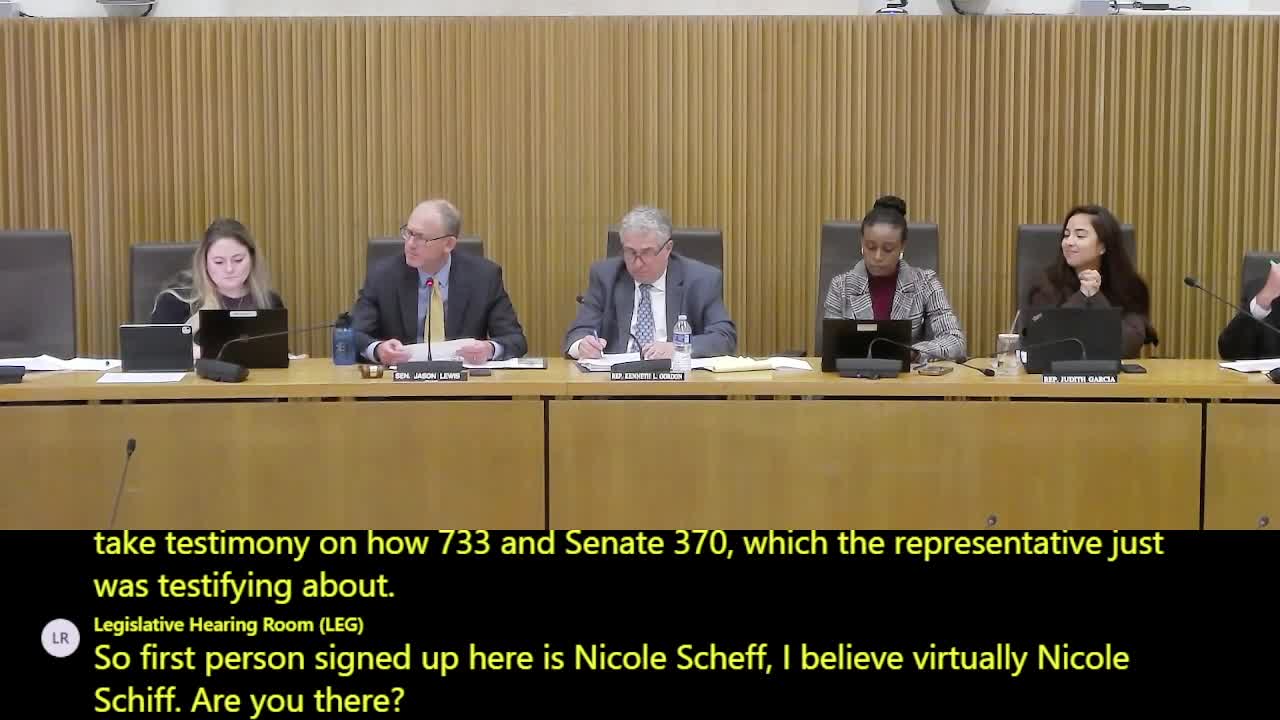Advocates urge teaching and licensure changes to expand augmentative/alternative communication in schools
Get AI-powered insights, summaries, and transcripts
Subscribe
Summary
Parents and disability advocates told the Joint Committee on Education that House 514 and Senate 418 should require the Department of Elementary and Secondary Education (DESE) to update teacher licensure standards and re-licensure to ensure educators can include students who rely on augmentative and alternative communication (AAC).
Parents, attorneys and disability advocates told the Joint Committee on Education that many students who rely on augmentative and alternative communication (AAC) are not benefiting from devices because classroom staff lack training and inclusion strategies.
Nicole Sheff, a parent, described how AAC expanded her 10-year-old son's ability to express needs and participate in integrated settings. "AACs have significantly expanded my child's ability to communicate to others clearly and effectively and to understand what others are trying to communicate to him," Sheff testified.
Advocates said federal special education law requires districts to provide communication devices when needed, but implementation often falls short because general-education and many special-education teachers lack hands-on training. Anne Guay, a pro bono attorney with Massachusetts Advocates for Children and a member of Advocates for Autism of Massachusetts, said the bill — House 514 / Senate 418 — would direct DESE to review and amend teacher licensure regulations so that teachers who do not hold severe/moderate disabilities endorsements receive adequate instruction in using and including AAC devices.
Julia Landau, an attorney at Massachusetts Advocates for Children, described a case where a district provided a communication device but failed to use it in the classroom until outside experts trained staff. After training, the student "is thriving," Landau said, with decreased behaviors and active classroom participation.
Why it matters: Witnesses said AAC is not only for students to request items; it enables two-way communication and access to curriculum. They argued that preparing newly licensed teachers and strengthening re-licensure requirements would reduce the need for repeated individual advocacy and avoid educational harm to nonverbal students.
Key details and clarifications
- Legislative aim: House 514 / Senate 418 would direct DESE to review and revise teacher licensure and possible re-licensure requirements so more educators receive training in AAC and inclusion practices. - Scope: Testimony emphasized training for general education teachers, early childhood educators, and special-education teachers beyond those already covered by the severe/moderate disabilities endorsement. - Implementation: Witnesses described a model where speech-language pathologists program devices and specialists provide in-depth technical work, while classroom teachers need practical strategies to include AAC users in daily instruction and routines. - Prevalence: Advocates estimated that 25 to 30 percent of children with autism are nonverbal or have limited speech and commonly rely on AAC.
Quotations
- "By giving nonverbal students a means to communicate, teachers enable them to participate in school and be active in the classroom," Anne Guay, pro bono attorney and AFAM executive committee member. - "We hope to diminish the need for future advocacy, and more importantly, avoid the harm to thousands of children who can't learn if they can't communicate," Julia Landau, Massachusetts Advocates for Children.
Discussion and committee questions
Committee members pressed witnesses for implementation details: how many teacher-preparation programs already teach AAC strategies, how intensive training needs to be, and whether DESE could act without new legislation. Witnesses said most programs cover AAC only for teachers with severe/moderate-disability endorsements and that classroom-level training focuses on practical inclusion steps rather than device programming. The witnesses requested DESE data on current preparation capabilities.
Formal actions and procedural outcome
House 514 and Senate 418 received public testimony but no committee vote at the hearing. Committee members asked advocates to provide updated information on teacher-preparation programs and DESE engagement.
Ending/next steps
Committee members requested that advocates and DESE provide (1) updated survey data on pre-service programs' AAC training and (2) examples of model training or cost estimates for teacher-prep curricula to inform potential regulatory changes or statute.
